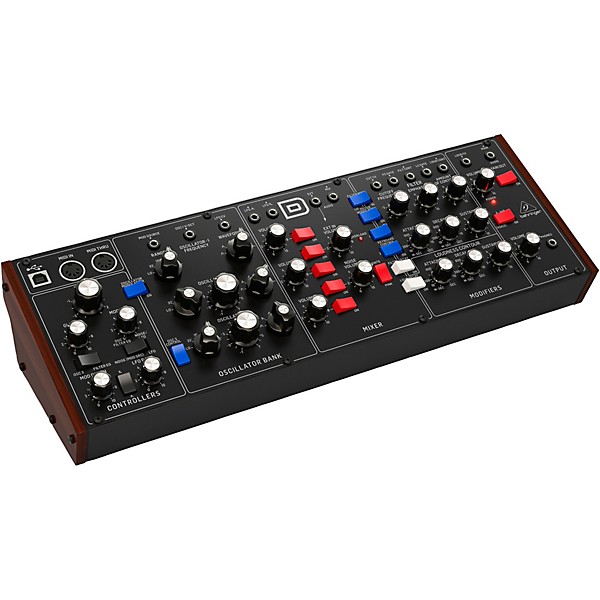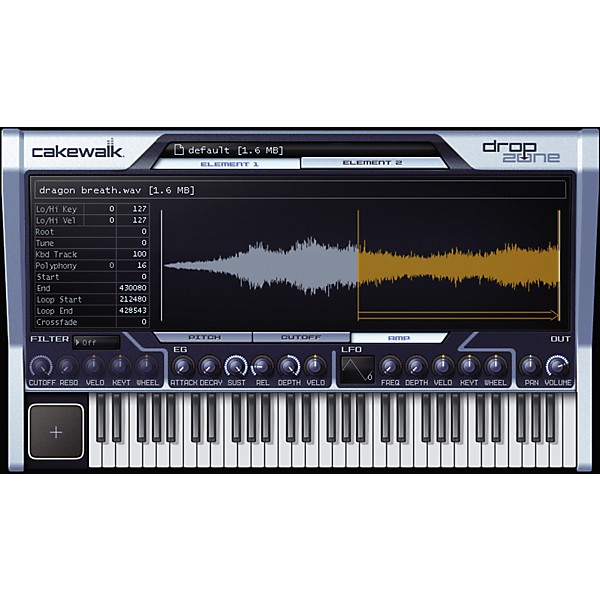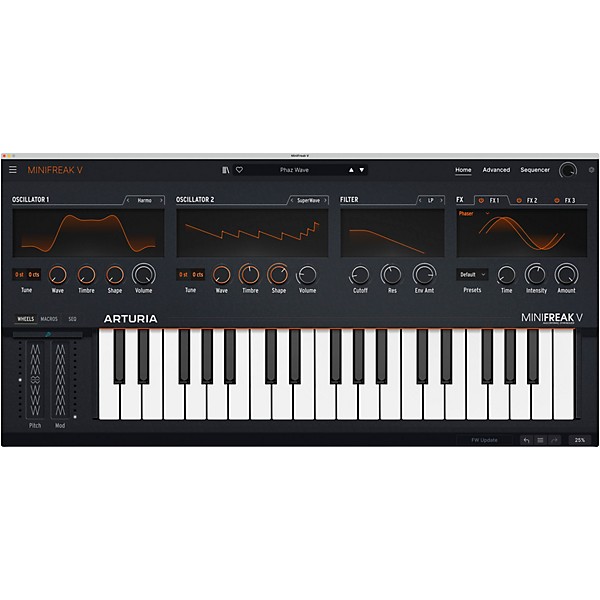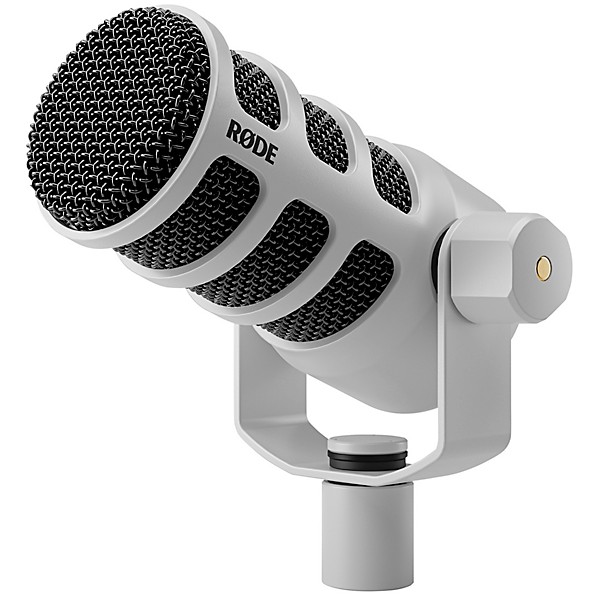Bringing Analog Warmth to Your Home Studio: Best Affordable Analog Synthesizers Reviewed

Introduction
In today’s increasingly digital world, many musicians and home studio enthusiasts find themselves yearning for the unmistakable character of vintage sound. The sterile precision of digital synths, although powerful, often lacks the soulful depth and organic warmth inherent to analog equipment. Affordable analog synthesizers offer an oasis for the creatively inclined, providing an authentic sonic experience that rekindles the nostalgia of yesteryears while integrating seamlessly with modern studio workflows. In this comprehensive review, we delve deep into the world of analog synthesis to uncover models that not only honor the legacy of classic instruments but also adapt to the evolving demands of today’s producers.
As music production embraces a blend of old and new, the tactile interface of analog synthesizers becomes a crucial tool for artists who value the interplay between art and technology. From the robust build quality of vintage-inspired circuits to the flexibility provided by MIDI connectivity, these devices deliver an unbeatable combination of authenticity and versatility. Whether you are setting up your personal studio sanctuary or planning to take your performance to new heights, affordable analog synthesizers serve as a perfect bridge between eras, delivering warm, resonant tones that digital approximations simply cannot match.
Over the coming sections, we will explore the key features and benefits of these synths, compare them against popular alternatives, and weigh their strengths and limitations. With carefully curated examples and detailed comparisons, our goal is to empower you with the insights needed to choose the perfect analog companion for your musical journey. Expect an in-depth analysis that covers everything from the design philosophy behind these instruments to user experiences in both studio and live performance settings.
Analog synthesizers have experienced a renaissance among modern producers, driven by a renewed appreciation for organic sound textures and the hands-on experience of real hardware. Many acclaimed artists now swear by the unmistakable warmth delivered by analog circuits, and you too can recapture that magic with the right piece of gear. As you read on, prepare to embark on a journey that not only revisits the heritage of analog sound but also reveals how today’s affordable options are empowering a new generation of musicians.

Key Features & Benefits
Affordable Analog Synthesizers: Capturing Vintage Sound
Affordable analog synthesizers deliver a sound that is steeped in the tradition of classic circuits while remaining budget friendly. Their meticulously designed circuitry emulates the organic imperfections of vintage models, resulting in tones that are warm, rich, and full of character. These devices are crafted to recapture the magic of legendary synths, yet they integrate modern functionalities like MIDI connectivity and modulation controls, allowing artists to explore a broad spectrum of sonic landscapes. The design philosophy strikes a balance by offering a tactile interface reminiscent of yesteryear, coupled with enough innovation to satisfy contemporary creative demands.
- Rich Harmonic Complexity: Delivers layers of overtones that impart warmth to each note.
- Faithful Circuit Emulation: Replicates the quirks and nuances of classic analog units.
- Budget-Conscious Pricing: Accessible price points without sacrificing core value.
- Enhanced Modulation Options: Integrated MIDI and modulation controls expand creative potential.
- Robust Build Quality: Durable construction designed to withstand long studio sessions.
Usage tip: When experimenting with patch settings, remember that subtle adjustments can yield significant shifts in the tonal output.
Analog Warmth in Your Home Studio Synth Setup
The charm of analog warmth is an essential ingredient for many modern home studio setups. Crafting a sonic landscape that is imbued with life requires tools that not only perform but inspire. Analog synthesizers contribute to a vibrant studio environment by injecting tracks with a distinctive human touch. They offer unwavering stability and dynamic response, ensuring that every keypress or knob twist translates into expressive sound. This tactile involvement fosters a closer connection to the music-making process, where the analog nature of the signal chain is celebrated rather than hidden behind digital precision.
- Organic Sound Texture: Brings natural warmth and depth to musical compositions.
- Responsive Controls: Physical knobs and switches provide immediate feedback.
- Studio Versatility: Easily fits into both minimalist setups and complex systems.
- Dynamic Sound Shaping: Enables intricate manipulation of tone and timbre.
- Intuitive Operation: Simplifies real-time adjustments during recording sessions.
Usage tip: Pair your analog synth with subtle reverb and delay effects to further enrich the warmth and presence of your sound.

Innovative Connectivity and Modern Integration
Beyond sound quality, one of the standout benefits of today's affordable analog synthesizers is their impressive connectivity and integration options. Manufacturers have learned from the past, ensuring that even budget models are equipped to seamlessly interface with modern audio production technology. These instruments often feature state-of-the-art connectivity options such as USB, MIDI, and CV/gate outputs, making them ideal for bridging the gap between analog and digital realms. The design seamlessly merges the old-school charm of physical controls with the conveniences of today’s connectivity, allowing users to integrate their synths into any complex rig without hassle.
- Universal Connectivity: Ensure seamless integration through USB, MIDI, and CV/gate outputs.
- Hybrid Functionality: Merge analog sound character with digital editing features.
- Plug-and-Play: Simple setup allows you to start creating music immediately.
- Expandable Systems: Easily incorporate additional modules and devices for more complex setups.
- Futureproof Interfaces: Stay compatible with emerging music tech standards.
Usage tip: When building a hybrid setup, test different connectivity configurations to discover the workflow that best suits your creative process.

Ease of Use and Customization Options
Simplicity in operation and the ability to customize are key attributes of exceptional analog synthesizers. Modern iterations of these instruments are engineered with the user in mind, often featuring simplified interfaces that do not compromise on depth. Detailed controls allow for face-to-face interaction with the sound parameters, giving musicians a straightforward yet powerful way to experiment with different sonic textures. Moreover, many models offer customizable presets, allowing you to save your favorite sounds and recall them instantly. This ensures that your creative ideas are never lost and that you can swiftly navigate through tonally rich environments to find the perfect audio expression.
- User-Centric Design: Simple, intuitive interfaces that reduce technical barriers.
- Preset Customization: Save, modify, and recall your unique sound settings.
- Hands-On Controls: Direct manipulation of filters, oscillators, and envelopes for real-time performance.
- Ergonomic Layout: Thoughtfully organized controls ease navigation during live sessions.
- Creative Expansion: Flexibility to experiment with unconventional sound designs.
Usage tip: Regularly back up your custom presets to avoid losing that perfect sound patch during updates or unexpected resets.
Comparison vs. Alternatives — Feature Showdown
When evaluating affordable analog synthesizers, it is important to see how they stack up against other renowned options available in the market. In this section, we compare four popular models—each with its own set of strengths and limitations—to help you understand which might best suit your creative ambitions. The comparison emphasizes aspects like price, sound quality, connectivity, and overall design philosophy. By laying out the features side by side, we hope to provide clarity and assist you in making a well-informed decision that compliments your particular style and workflow.
| Behringer Model D Clone | MiniBrute 2 | Minilogue XD | Korg Monotron |
|---|---|---|---|
|
|
|
|
| Price: Moderate – excellent value for vintage tone. | Price: Higher – reflects advanced patching capabilities. | Price: Moderate – hybrid functionality at a fair cost. | Price: Very affordable – entry-level analog experience. |
This table lays out a concise comparison; while the Behringer Model D Clone and Korg Monotron focus on delivering pure vintage analog sound at accessible prices, the MiniBrute 2 and Minilogue XD offer additional modulation flexibility and hybrid features. Each model caters to a slightly different niche, ensuring that regardless of your specific needs, there is an analog synth that will inspire your creative workflow.
Pros & Cons
Behringer Model D Clone
Pros
- Authentic vintage sound reminiscent of the classic Minimoog.
- Affordable pricing without sacrificing key analog characteristics.
- Sturdy build quality suitable for both studio and live performances.
- User-friendly interface with straightforward controls.
- Offers the essential analog warmth many producers seek.
Cons
- Limited modulation options compared to more advanced synths.
- May require external modules for expanded functionality.
- Design can feel basic for users looking for extensive features.
- Lacks some of the in-depth editing capabilities of premium models.
- Not as versatile in sound sculpting for experimental setups.
MiniBrute 2
Pros
- Robust analog circuitry delivering diverse tonal colors.
- Comprehensive patchbay enables creative modulation routing.
- Sturdy construction that appeals to live performers.
- Rich palette of sounds suitable for experimental music.
- Highly tactile controls enhance the playing experience.
Cons
- Higher price point due to advanced features.
- Steeper learning curve for users new to analog synths.
- Heavier and less portable than some competing models.
- Limited built-in effects compared to hybrid synthesizers.
- Aftertouch response may not satisfy every performance need.
Minilogue XD
Pros
- Hybrid architecture melds analog warmth with digital versatility.
- Four-voice polyphony allows for lush chord progressions.
- Advanced modulation options provide extensive sound shaping.
- Integrated effects deliver unique tonal variations.
- User-friendly interface makes programming intuitive.
Cons
- Interface may overwhelm beginners with its multifaceted options.
- Some users find the hybrid design detracts from pure analog simplicity.
- Limited user memory compared to dedicated digital models.
- Price is slightly higher than entry-level analog counterparts.
- Occasional digital artifacts may appear in certain patches.
Korg Monotron
Pros
- Exceptionally portable and great for on-the-go music creation.
- Simplicity of design makes it accessible to beginners.
- Provides a raw and unprocessed analog sound character.
- Battery operated with low power consumption.
- Affordable price ideal for entry-level experimentation.
Cons
- Limited control options restrict detailed sound sculpting.
- Lacks advanced modulation or connectivity features.
- Mono-voice operation may not suffice for complex performances.
- Build quality is modest compared to larger analog synths.
- Sound design possibilities are more constrained than higher-end models.
Conclusion
In summary, the revival of analog synthesizers in affordable packages has come at a perfect time for artists who appreciate the nuanced warmth and expressiveness of vintage sound. The models reviewed—from the Behringer Model D Clone to the MiniBrute 2, Minilogue XD, and Korg Monotron—each shine in their unique ways while offering essential features that cater to different creative needs. Whether you’re drawn to the raw, nostalgic tones of a classic design or crave the flexibility of modern connectivity, adding one of these analog gems to your home studio can transform your musical productions.
Integrating analog gear into your workflow not only revitalizes your sonic palette but also encourages a hands-on, creative process that’s difficult to replicate with purely digital instruments. With intuitive controls, robust construction, and a rich sonic character, affordable analog synthesizers bridge the gap between timeless musical heritage and contemporary production demands. Embrace the imperfections and inherent warmth these instruments bring, and let your music tell a story that resonates with authenticity and vitality.
FAQs
What makes affordable analog synthesizers a valuable addition to a home studio?
Affordable analog synthesizers inject a unique character into any studio setup by delivering warm, organic tones that digital devices often fail to replicate. Their tactile interfaces, combined with modern connectivity options like MIDI, allow for seamless integration into existing setups, ensuring that both vintage charm and contemporary functionality work hand in hand.
How do these synthesizers compare to high-end analog instruments?
While high-end analog instruments may offer more intricate modulation capabilities and extensive editing options, affordable models strike a balance between quality and value. They are designed to capture the essence of classic analog sound—rich harmonics, authentic warmth, and expressive playability—without the premium price tag that typically accompanies top-tier gear.
Can these analog synths be easily integrated with digital audio workstations?
Absolutely. Modern affordable analog synthesizers are typically equipped with MIDI, USB, and sometimes CV/gate outputs, making them highly compatible with digital platforms. This integration allows producers to blend analog organic sounds with digital precision, opening up a realm of creative possibilities in any production environment.
Are these synthesizers suitable for both studio recordings and live performances?
Yes, many of these models are built to withstand rigorous use in live settings while still delivering studio-quality sound. Their robust build quality, combined with intuitive interfaces, ensures that whether you are in a controlled studio environment or on stage, you experience consistent performance and inspiring sonic output.
What should I consider when choosing an analog synthesizer for my setup?
When choosing an analog synthesizer, consider factors such as sound character, connectivity options, ease of use, and how the instrument complements your creative workflow. Think about whether you need extensive modulation capabilities for experimental sounds or if a straightforward interface with pure analog warmth better matches your production style. Assessing these aspects will help you select the perfect instrument to enhance your musical expression.
As you evaluate the options available, remember that the ultimate measure of a synthesizer’s worth is the inspiration and creativity it fuels in your work. Affordable analog synths provide the perfect starting point for artists looking to explore the rich sonic terrain of vintage tones while enjoying the benefits of modern technology. Their unique blend of character and functionality ensures that every note played is a step closer to capturing that elusive, expressive warmth.
In conclusion, whether you are an aspiring producer or a seasoned musician returning to the roots of analog synthesis, the models reviewed in this article offer a spectrum of capabilities designed to elevate your creative journey. Embrace the heritage, experiment with the tactile controls, and allow the warm analog tones to redefine your sound—transforming your home studio into a vibrant space of unlimited musical exploration.




